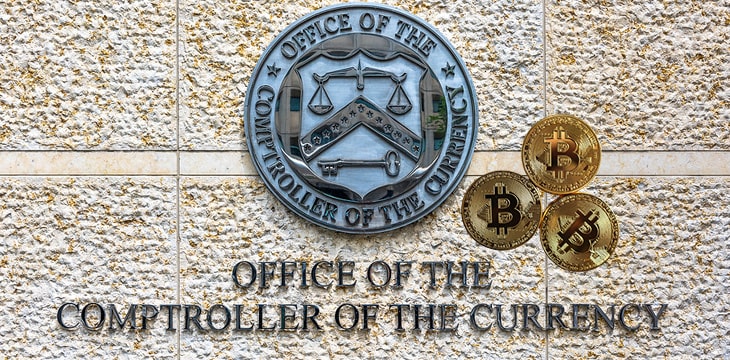|
Getting your Trinity Audio player ready...
|
A U.S. regulator wants to ensure banks can no longer blacklist businesses on the virtue of the industry they operate in, including digital currency businesses. The Office of the Comptroller of the Currency (OCC) has proposed the rule that will finally ensure fair access to banking services, credit and capital.
In its press release, the OCC stated that the new rule will require banks to “provide access to services, capital, and credit based on the risk assessment of individual customers, rather than broad-based decisions affecting whole categories or classes of customers.”
The digital currency will be one of the biggest beneficiaries of the proposed rule. The industry has been disproportionately denied banking services by most banks, in the U.S. and beyond. For some blockchain startups, their accounts have been shut without notice or explanation by major U.S. banks.
One of these is Cryptoraves, a blockchain startup targeting the social media industry with its credibility tokens. As CoinGeek reported in 2019, JPMorgan shut down the startup’s account for “operating in a prohibited industry.” The bank allegedly flagged the startup’s bank account after the founders wired funds to Gemini exchange. Incidentally, JPMorgan shut down the startup’s account just a day after launching its own token, the JPM Coin.
Acting Comptroller of the Currency Brian Brooks is seeking to finally end this discrimination by banks with the proposed rule. Brooks, a former Coinbase executive who took office in May, believes that banks have a responsibility to provide financial services fairly.
Speaking to media outlets, Brooks further stated that he believes the digital currency industry will be one of the biggest gainers from the rule. In the U.S., there’s no place where digital currencies are illegal, he said. There are different requirements in separate states which digital currency companies must adhere to, however.
“Obviously, if a bank was banking one of those businesses, one of the things that bank would look at as part of its diligence is whether that exchange or other business had the relevant approvals in that state.”
As CoinGeek reported recently, Brooks could head the OCC for a five-year term after President Donald Trump nominated him to take over in an official capacity. Brooks has been the Acting Comptroller of the Currency since May 29. He is expected to be confirmed before president-elect Joe Biden takes office in 2021.
See also: U.S. Rep. Darren Soto’s keynote presentation on Balancing Innovation & Regulation for Growth of Blockchain Technology

 03-05-2026
03-05-2026 




